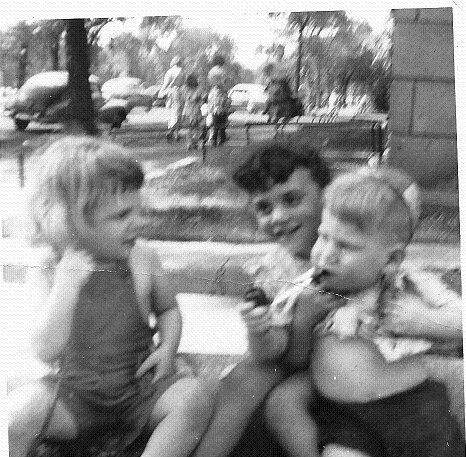By Larry Teren

Theodore Bikel loved to tell stories. One was about the famous harmonica player Larry Adler. Adler told him that when he was about 15 or 16 he was already beginning to develop a reputation as a talented musician. He was in Chicago performing his first show at a night club. After the show, there was a fancy party to celebrate a successful evening. Larry, being too young, had a soft drink.
A man came up to him and said, “you’re terrific- where you from?” Larry replied he was from Baltimore. The fellow then told him that he sounded Jewish and asked if he was. Larry nodded in agreement. The man continued, “you go to shul (synagogue)?” Larry admitted that he rarely went.
The man persisted. “You should go every week. Is your mother alive?” Again Larry acknowledged affirmatively. The man asked him if he wrote to her regularly. Larry replied that he wrote infrequently.
The man insisted that Larry write to his mother every day. (Of course, this was in the early 1930s when the post office delivered the mail in big cities like Chicago twice a day and usually within twenty-four hours)
The man walked away and Larry asked someone who the nosy fellow was. He was told it was Al Capone.

Larry Adler told the same story with a little more embellishment. He said that Capone told him that he had to go to shul that Saturday no matter how many shows he had to do. Big Al told Larry that he went to Mass every Sunday and then sent his mother flowers. He told Larry that he should wire his mother flowers in Baltimore regardless of the cost.
Capone then told Larry of a recent incident that had happened to him where one of his henchmen had shot and killed a man during the daytime on State Street, so there were several witnesses. Capone had his men privately seek out and “interview” the jurors after they were selected. He looked for a weak link in the chain. One who could be bribed to the tune of $25,000 to hold out for a manslaughter verdict instead of murder in the first degree.
The jury was out for three days and finally came in with a verdict to Capone’s liking- manslaughter. He threw a party for the friendly juror and gave him another twenty-five thousand dollar bonus as a token of his appreciation. Capone asked him how we was able to sway the other eleven as he thought it didn’t look too good after reading the detail of the court proceedings. The juror told Capone that the other members of the jury were really dumb. “They wanted to acquit him. But I held out like you told me to.”
Molly Picon, the Yiddish actress also told a story about the benevolent Mr. Capone. In 1929, she played the Chicago Palace Theater. Capone and thirty of his henchmen took up three rows and enjoyed her performance. After the show, one of his lieutenants came backstage and “invited” her and the entire cast to Capone’s cabaret in suburban Cicero. When Capone invited, you went. Earlier the Duncan Sisters had refused a similar invitation and one had a hastily arranged face lift.
During Molly’s “command performance”, Capone never spoke directly but through a messenger who asked her to repeat a few songs that brought Big Al to tears.
In 1932, Molly performed her act at the London Palladium. The management hosted a party at the Savoy Hotel in order to introduce her to the press. She mentioned the names of famous celebrities who came to enjoy her shows- Albert Einstein, Mayor Jimmy Walker of New York, Greta Garbo and even the King and Queen of Romania. It didn’t impress any of the Britishers. But when her husband blurted out that she performed at Capone’s cabaret- that was what did it. Newspaper headlines on articles discussing her read: “The ‘Moll’ Who Sang for Al Capone’.
The best story, however, that Theodore Bikel told was the one about his grandmother. The Bikels lived in Vienna Austria. They watched Hitler and his thousands of henchmen march into Vienna and take over Austria without one shot being fired in 1938. The next day, having dual citizenship of both Austria and Great Britain, they were able to go to the office of the Kommandant of the Austrian territory and show them a visa that would let them into Palestine, then under British Mandate. The entire family left except for his grandmother, his mother’s mother- who had the nerve to go back to the Kommandant and insist that she be allowed to take their personal belongings and furniture on a lift to Palestine as well.
The officer apparently had no direct orders yet to terrorize Jews. He respected the old lady’s gumption and gave her permission to do as she pleased. She did indeed go to Palestine and the lift came a little later with the Bikel belongings.
